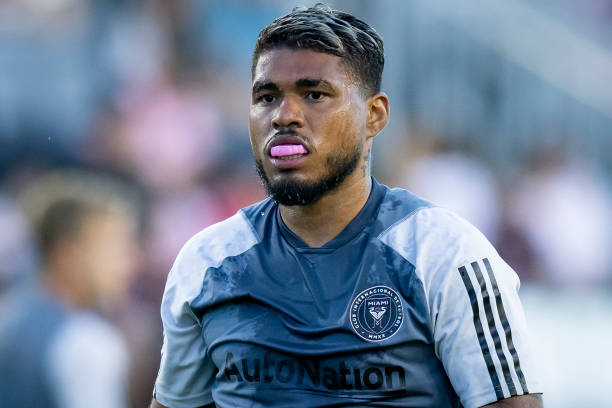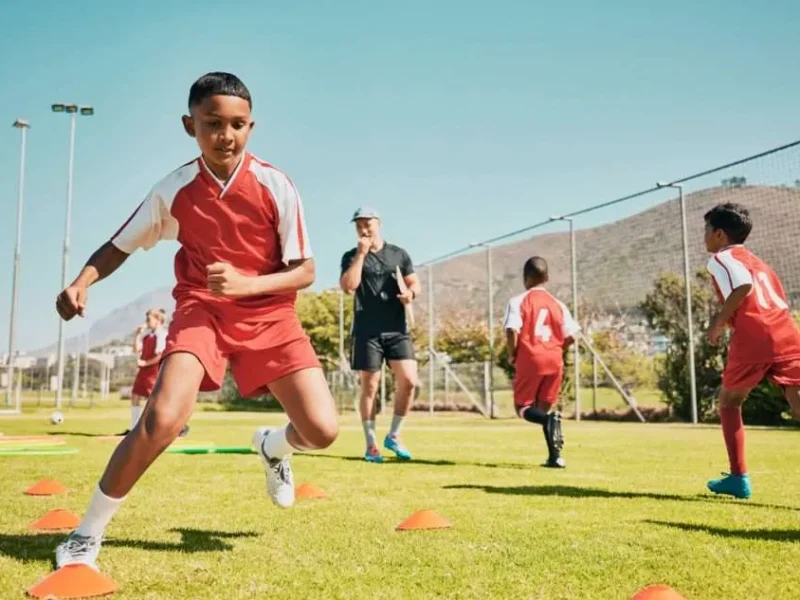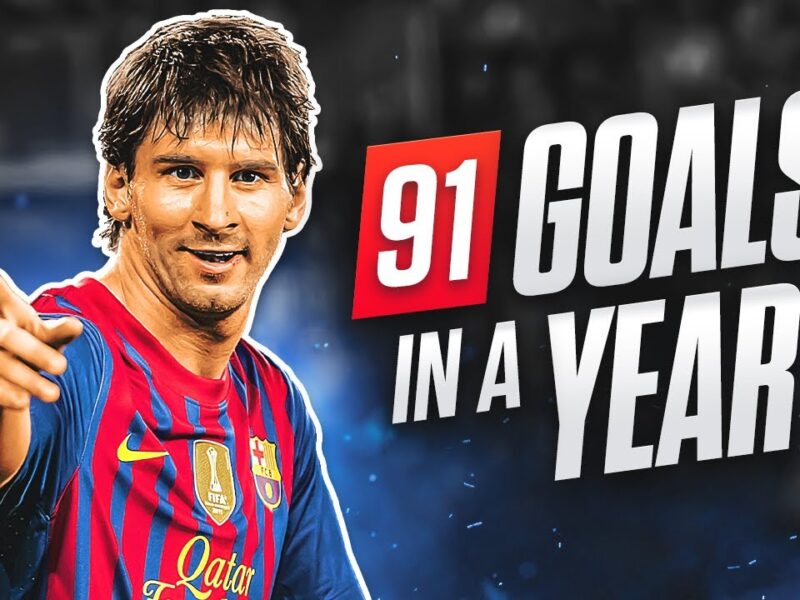You are playing street soccer on a weekend, the sun beating down as sneakers scuff against asphalt. The game’s heated, trash talk flying from every corner, quick passes zipping across the makeshift field, everyone giving it their all.
Then it happens.
In the chaos of a solid contention for the ball, your mate takes an accidental elbow to the face. He drops to the ground, his hand to his mouth, and when he looks up, you see it: a tooth, lying on the pavement.
It’s a moment that makes everyone freeze. And while the game might eventually continue, there’s an awkward silence and awareness that sticks with you.
This could have been avoided, right? Then you think about it, Do soccer players wear mouthguards? Should we?
It’s a question that goes beyond the street game. Even in professional matches, where the stakes are high and collisions are intense, mouthguards are a rare sight.
So why is that? Let me break it down, looking at the risks, the culture, and the reasons why mouthguards have not quite made it into the mainstream of soccer.
Why Aren’t Mouthguards a Thing in Soccer?
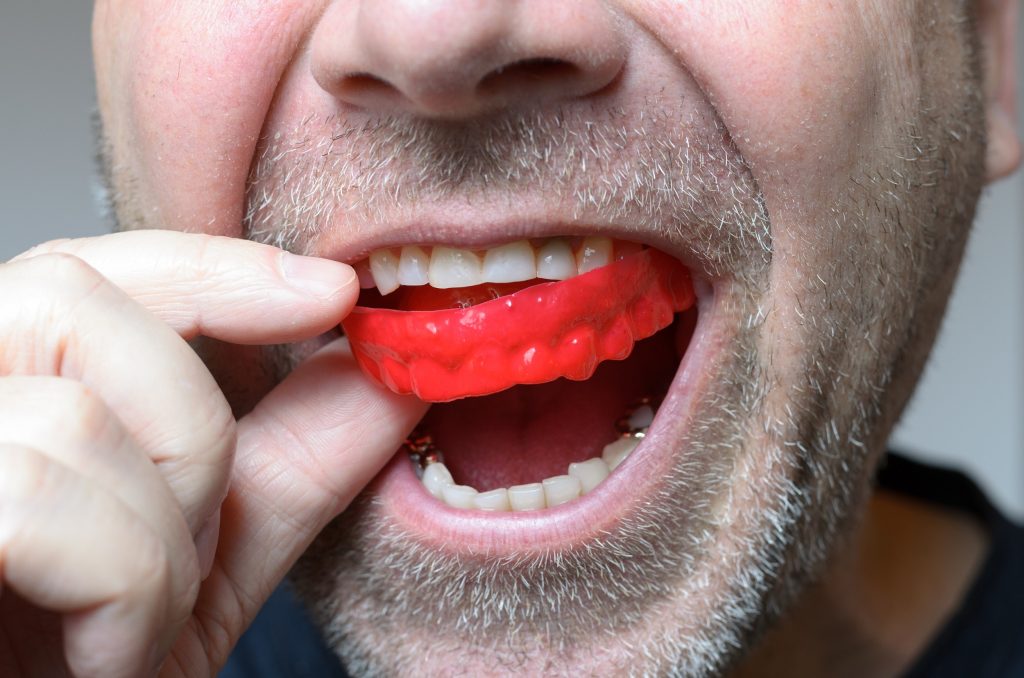
Soccer has a reputation as a contact sport that is not quite full-contact. While injuries are common, the focus tends to be on legs—ankles, knees, and shins.
Protecting your mouth is not top of mind, and there are several reasons why mouthguards have not caught on.
1. No Mandates, No Motivation
Unlike shin guards, which are required by FIFA and most leagues, mouthguards are entirely optional in soccer.
If something is not mandatory, many players see it as unnecessary. It’s one less thing to think about, one less piece of gear to remember.
2. Comfort and Communication
If you’ve ever worn a mouthguard before you’d know they can take some getting used to. They can feel bulky, make talking more difficult, and even interfere with breathing if they’re not custom-fitted.
In soccer, where verbal communication is vital in team for coordinating plays and defending, anything that hinders speech can feel like a disadvantage.
3. Perception of Risk
Soccer does not seem as dangerous as football, hockey, or rugby when it comes to dental injuries.
The truth is that soccer involves plenty of face-level contact. Headers, elbows, collisions, and even stray balls can wreak havoc on your teeth.
Still, because these injuries are not as always like an ankle sprains or torn ligaments, players often underestimate the risk.
4. Cultural Habits
The beautiful game has deep traditions, and equipment choices are part of that culture. Players grow up wearing what their coaches and peers wear, which rarely includes mouthguards.
It’s a cycle: because they’re not common, they don’t become the norm.
CHECK OUT | Is Soccer Good for Weight Loss?
What Happens Without a Mouthguard?
Back to your mate lying on the pavement. His tooth is not just gone, it’s now a problem for him.
Dental injuries are expensive, painful, and sometimes permanent. A knocked-out tooth, for example, can cost thousands to replace and requires long-term care.
And it’s not just about teeth. A strong hit to the mouth or jaw can lead to concussions, gum injuries, or even fractured facial bones.
According to the American Dental Association, athletes are 60 times more likely to suffer dental injuries if they don’t wear a mouthguard. That’s a number worth paying attention to especially if you’re serious about your game, and your smile.
Who Wears Mouthguards in Soccer?
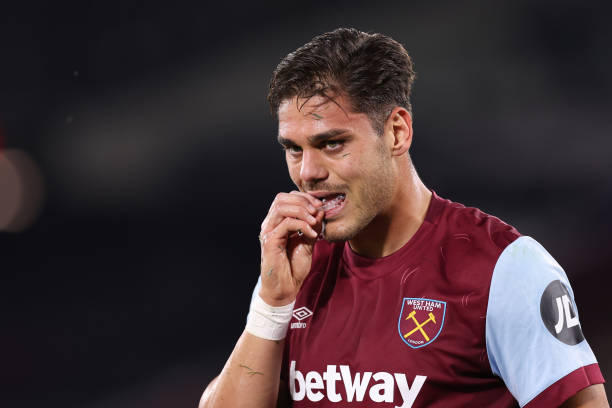
Some players do wear them, but they’re in the minority. Where you’re more likely to see mouthguards in action.
- Youth Leagues: Many parents insist their kids wear mouthguards, especially in physical leagues or during tournaments.
- Players With Prior Injuries: Just like your friend who just lost his tooth, now that he’s felt the sting of a dental injury, he’s way more likely to grab a mouthguard before stepping onto the field next time.
- Goalkeepers: Though not common, goalies are at higher risk due to close-range plays and diving into crowds.
That said, even among these groups, adoption is inconsistent.
What Type of Mouthguard Should You Get?
I’m not here to scare you with all this talk. However, if you’re thinking about wearing a mouthguard or getting your team on board, choosing the right one is super important, not every mouthguard is a one-size-fits-all solution.
1. Stock Mouthguards
These are the cheapest and most basic option. They’re pre-formed and ready to wear straight out of the box. They don’t fit well, can be uncomfortable, and don’t stay in place during intense play.
2. Boil-and-Bite Mouthguards
A step up from stock versions, boil-and-bite mouthguards are softened in hot water and then molded to your teeth.
They offer a better fit and more comfort, making them a popular choice for casual players.
3. Custom Mouthguards
Custom mouthguards are made by a dentist to fit your mouth perfectly.
They’re comfortable, durable, and provide the best protection. The downside? They can be expensive, but for serious players, they’re worth the investment.
CHECK OUT | Best Soccer Speed of Play Drills: Boost Your Skills
How Do Experts Feel About Mouthguards in Soccer?
Sports medicine professionals and dentists are all for mouthguards. Research consistently shows that they’re highly effective at preventing dental and oral injuries.
The challenge is getting players to see the value before something bad happens.
Dr. Michael Turner, a dentist specializing in sports injuries, says:
“We often see players come in after preventable injuries. A custom mouthguard could have saved them from pain and costly repairs. It’s frustrating to know it could have been avoided with a simple piece of equipment.”
Why Don’t Professional Players Use Them?
You might think, If mouthguards are so effective, why don’t I see Messi or CR7 wearing one?
It boils down to a mix of comfort, tradition, and risk assessment.
At the professional level, players prioritize performance and often feel that mouthguards interfere with their game. And because they’re not mandated, many players just don’t see the point—until they’re dealing with a dental emergency.
Should YOU Wear a Mouthguard?

The decision is yours to make. Are you willing to risk a dental injury for the sake of comfort? Or would you rather spend a few minutes getting used to a mouthguard now to avoid months of dental work later?
If you’re playing in a physical league, competing at a high level, or just want to protect your teeth, a mouthguard is a smart choice. Even if you’re playing recreationally, accidents happen.
A mouthguard is an inexpensive way to ensure those accidents don’t turn into costly problems.
CHECK OUT | Can I Play Soccer With a Sprained Ankle?
Tips for Making Mouthguards Work for You
If you’re ready to give mouthguards a shot, here are a few tips to make the transition smoother:
- Practice Makes Perfect
Start wearing your mouthguard during practice sessions. This helps you get used to it without the pressure of game-day intensity. - Go Custom If You Can
Investing in a custom-fit mouthguard can make a world of difference. It’s more comfortable, fits better, and won’t interfere as much with communication. - Keep It Clean
Mouthguards can get gross fast. Rinse it after every use, and clean it regularly with toothpaste or mouthguard cleaner. Store it in a ventilated case to keep bacteria at bay. - Make It Routine
Treat your mouthguard like any other piece of equipment. If you wouldn’t play without shin guards, why play without protecting your teeth?
Wrapping Up
Do soccer players wear mouthguards? Most do not, but maybe they should. The risks of playing without one are real, and the benefits are undeniable.
If you are serious about soccer, or just serious about keeping your teeth, a mouthguard is a no-brainer. It might take some getting used to, but it’s a small adjustment for a big payoff.

